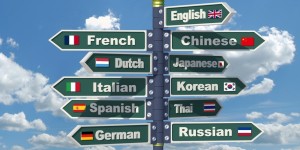What are the Most Prestigious Language Qualifications in the World?
Anyone serious about learning a language will know that in order to communicate your linguistic achievements to prospective schools or employers, you must provide official qualification.
There are many different varieties of these, and whichever one you seek to pursue depends entirely on your motivation to learn a language, and your goals toward which you seek to use your skills.
Every country has its own method of measuring proficiency in languages – for example, the United States has the IRL scale while Europe uses the Common European Framework of Reference to discern between elementary and advanced speakers. But to compare the different rubrics is perhaps not very accurate when you take into account different cultures’ attitudes towards multilingualism and how accustomed they are to communicating in various different languages.
For example, Level 5 on the ILR scale, which is the “native or bilingual” level on the rubric, corresponds with C2 on the CEFR scale, which is “mastery or proficiency” but not necessarily that of a native speaker. While this does not mean that a top score on the ILR scale is worth more than the CEFR scale, it provides an idea of what language expectations employers or academic institutions may have in which countries.
Perhaps the most immediate reason someone would learn a language is if they’re planning to travel abroad and have need of a crash course in common sayings, basic vocabulary and grammar, and so on. If you want to scrape by with the necessary phrases, you should be able to get by knowing a hundred words or so, where if you are actually interested in speaking conversationally, it would require at least 3,000 words (whereas native-level fluency in a language falls in the range of 20,000 to 40,000 words).
An expat, seeking to settle long-term in their new country, would hopefully be interested in a more thorough level of understanding of their second language. Most would want to exceed the level of basic user – which includes being able to understand short sentences and describe things in simple terms –to the extent that they would be independent of needing a translator to communicate what they want.
 Anyone seeking a job that requires high to native language proficiency, such as a translator, interpreter, or teacher, will find that having official qualifications will provide higher salaries and better job security. In fact, many language schools will only hire native speakers to teach classes, particularly those with teaching certifications. Non-native speakers with qualifications of less than a mastery or at least professional working standard level of language skills will find themselves locked out of higher job brackets.
Anyone seeking a job that requires high to native language proficiency, such as a translator, interpreter, or teacher, will find that having official qualifications will provide higher salaries and better job security. In fact, many language schools will only hire native speakers to teach classes, particularly those with teaching certifications. Non-native speakers with qualifications of less than a mastery or at least professional working standard level of language skills will find themselves locked out of higher job brackets.
So what can you do to increase your earning potential in the language-based professions? While it isn’t necessary to speak a second language at a native level, the more effort you put into achieving fluency, the higher demand you will wield in the workforce. As proficiency in a language can take years, it’s important that you start learning as soon as you can. Once you are confident in your linguistic skills, there are a multitude of qualifications exams you can take for virtually every major language in the world. Send us an inquiry to start off your career, or try one of our free online language level tests.

